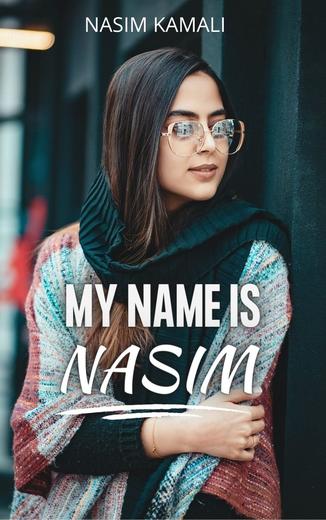
Age:
High School
Reading Level: 3.9
Chapter 1
The story starts like this: They tell you what you are. And you believe them.
I am eight years old when I am first called a terrorist. Eight years old when I feel the power of words puncture my chest like needles. Eight years old when my feet fall from the clouds and sink like lead.
It feels like jumping off a swing at the wrong moment and landing on prickly mulch. I am still figuring out how to tie my shoelaces. I’m still learning my times-tables when I first learn that my culture is dangerous.
I think back to the weathered, wrinkled hands of my grandmother cradling my face. I remember the warmth of my aunt’s voice, tucking me in with old Persian lullabies. I wonder how my warm peace could ever be dressed up like a senseless war.
She says my skin is too dark. We stand on the metal stairs of our school’s playground. The playground's bright reds and yellows attract the fancy of wide-eyed children. And she says it again.
Across from us, a boy plays Twinkle, Twinkle Little Star on a toy piano. Clink, clink, clink.
She says the hair that covers my arms reminds her of an animal—a gorilla.
My shame ignites with the ferocity of a wild beast.
Our very own pianist stops his playing. He rings with laughter.
But I hold my tongue. It is oppressive, this silence.
She has bright blue eyes that gleam in the sun and pale skin that bears light brown freckles. I think she is beautiful. When my mother says the same of me, I can only question her.
That night in the shower, I take a razor stolen from my sister's drawer to the hair on my arms and legs. I scrape and scrape and scrape until the water runs clean down the drain. My bare limbs are dotted with blood.
I am a young girl, but I know something is not right.
Chapter 2
I am eleven years old when I discover that to be American is to forget. Eleven years old when I stop responding to my parents in Farsi. I answer in English, instead.
The kids at school only want to learn dirty words from me. It seems my language is either a source of crude entertainment or shameful embarrassment. Maybe, I muse, it just depends on the day.
At school, I stop practicing the writing my father has taught me—Persian script—the day my math teacher peers over my notebook with a sneer. It is the same look my mother receives in public when she stumbles over her English words. I end the lessons.
Going one step further, I tell my mother to stop giving me leftovers from home for school lunches.
“Don’t feed me what the kids call stinky—what they call disgusting. I need to be normal,” I want to say. Despite my requests, she keeps making the lunches.
So I hide them in my backpack the entire day. I eat the bland meals the school provides. They taste different. Everything feels wrong.
It starts to feel like being American means to neglect.
One day, I write a list of new names for myself. My classmates can't pronounce the one I was given. They make jokes, saying it sounds like Nazi or nasty.
I laugh and play along. But inside, the desert within me grows bigger and hotter.
I decide to rename myself, to be like the rest of the bright-eyed children around me. But the jokes only get worse. The laughter gets louder.
Chapter 3
I am fourteen years old when I read that my skin is like the color of spices from foreign lands. Fourteen years old when I am told I appear “exotic.” As if my heritage, my culture, is a rare species among the human race.
It's as if whiteness is normal. Anything else is marked as “other.”
I want to tell people to open their eyes. I want to scream that there are plenty of people like me. The words sit in my mouth. Their heavy weight becomes a burden.
Men stare. They flirt with cheap lines dressed as compliments.
It's like a lesson outside of school: they teach me the system.
I learn that I am defined only by my otherness. I learn that I’m desired for all the wrong reasons.